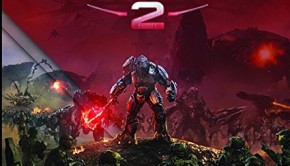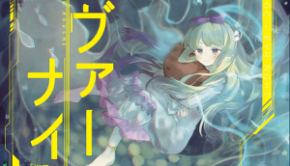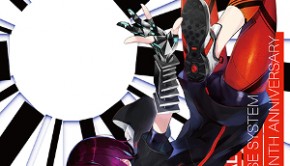Lance Hayes Interview: Forza Electronica
Lance Hayes first impressed the industry with his downbeat electronic score for Forza Motorsport 3. Two years later, he has created a more moody and cinematic score for its sequel. Also making contributions to projects such as Kinect Joy Ride, Microsoft Flight, and Gears of War 3, the relative industry newcomer has already risen to a high-profile artist.
In this interview, Hayes gives a preview of his score for Forza Motorsport 4 and discusses both its novel and conserved elements. In addition, he gives a wider career retrospective and discusses how he rose from obscurity with Forza Motorsport 3. He emphasises that, while he is best known for working on video games, he engages in wider activities including commercial scoring, column-writing, and teaching.
Interview Credits
Interview Subject: Lance Hayes
Interviewer: Chris Greening
Editor: Chris Greening
Coordination: Greg O’Connor-Read
Interview Content
Chris: Lance Hayes, many thanks for talking to us today about your music on the Forza series. First of all, could you tell us about your background? What did you focus on before making your breakthrough with Forza Motorsport 3?
Lance Hayes: I started out with formal training on trumpet as a child, picked up piano on my own and started writing at a young age. Being a driven individual, I built a basic synthesizer-based multi-track studio in my parents’ house before I had graduated high school.
By the time Forza came knocking, I had done work that was featured on international radio, film festivals, live theater, projects like the Matrix series, TV shows like Oprah, and networks like VH1 and Discovery. I also worked on a good number of casual games.
Despite all of that, it’s safe to say that Forza Motorsport 3 truly was a breakthrough because few people, outside of the industry, were aware of my work.
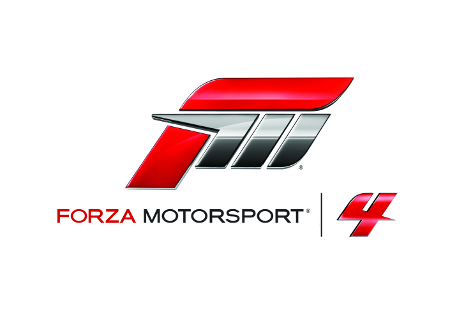
Chris: It’d be interesting to hear about the origins of your involvement in the Forza series. What circumstances led to you being appointed the original music composer of the game? Did you expect the title to be as successful as it was?
Lance Hayes: When I heard that Turn 10 was looking for a composer, I jumped at the opportunity. I sat down with audio director Greg Shaw several times and he was very thorough in the selection process. My background with electronic music and even some experience with car advertising for Infinity was very helpful in getting the gig.
I have to say that the worldwide reaction to the Forza series is amazing. Forza Motorsport 4 is clearly building on that achievement. Once you get to know the team at Turn 10 and see their laser focus and competitive spirit up close, it’s no surprise that it’s the success that it is.
Chris: While a lot of driving games feature intense soundtracks, Forza Motorsport 3 has a chillout vibe. What features of the game’s presentation inspired this direction? Was the direction compatible with the style you developed in your independent works?
Lance Hayes: Turn 10 wanted the user interface experience to look and sound like a high-end car experience. Sophisticated chillout music fit that concept very well. I had done a lot of ambient work for various projects over the years, so it came quite naturally to me when I sat down and started writing.
Chris: While Forza Motorsport 4 continues this approach, there are a number of developments and changes. Could you elaborate on what returning listeners should expect?
Lance Hayes: We decided early on that the new darker, more dramatic look of the user interface suggested a more cinematic and dramatic approach to the music. Around this time, Nick Wiswell had come over from Bizarre Creations as Turn 10’s new audio director. Together with Nick’s influence, we came up with a dramatic set of music that honored the chillout roots of Forza Motorsport 3 while moving in a subtle new direction.
Chris: On Forza Motorsport 4, you particularly emphasised fusions of different contemporary elements. How did you ensure the menu tracks were diverse enough to be interesting while still having a common vibe?
Lance Hayes: I approached the tracks with very different arrangement styles in mind when I would start writing each of them. For instance, I would designate at the beginning of the writing process that a track would approximately follow a certain style such as downtempo, hybrid orchestral arrangement etc. The arrangement and stylistic concerns often helped dictate the end result.
As for consistency, I would keep certain key style elements in mind and that this is, at its heart, an ambient project.
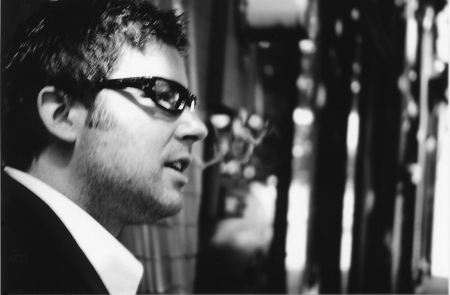
Chris: It’d also be interested to hear about how you implement your compositions. Do you build your sounds from the ground-up or do you incorporate samples too? How do you feel about incorporating instrumental performances into your music?
Lance Hayes: I start out writing a track by writing a melody on piano or focusing on arranging interesting synth or orchestra sounds, and I build from there.
Many of the sounds in my work are custom synthesizer sounds that I’ve hand created or tweaked. Sample-wise I use orchestral as well as acoustic sounds from many of the popular libraries. I also have my own collection of custom samples. I tend to avoid extensive use of loops as they can be pretty recognizable. I also love to use session players when I can as they add a unique dimension to a project when the music calls for it.
Chris: You also had an unexpected involvement in Gears of War 3, where you created music for the Stranded camps. How did it feel to be involved in an Epic franchise?
Lance Hayes: It was a fantastic honor to be involved in such a seminal franchise. I had been a Gears fan from the beginning and an Epic fan going back to Unreal, so, when the opportunity to work on the music of the Stranded came up, of course I was very excited.
Chris: What did you use to create unique soundscapes for the Stranded camps?
Lance Hayes: The music was designed to be a collection of songs created by the planet’s civilian survivors using threadbare, tin-pot instruments that they created by hand or salvaged. It was a low-tech idea that lent itself well to creating instruments by hand or twisting traditional instruments around.
The first thing I created was the Ladder Harp that was basically fishing line strung across an eight foot aluminum step ladder. I also had fellow musicians Jeff Ball and Ian Dorsch create sounds using bowing on odd objects like wood, found objects and metal stuff as well as traditional instruments like violin and banjo. Ian, his wife Joy and I all sang over the resulting pieces of music I came up with. It was a lot of fun!
Chris: Beyond your work for video games, you continue to be active producing music for commercials and other ventures. Could you discuss some recent highlights in this area and your overall aims outside of video games?
Lance Hayes: I do a lot of work that gets licensed for TV and various media outlets. Taking a recent example, you could hear my music on the MTV shows “MTV at the Movies”, “Pop Couture”, and “5 Questions” earlier this year. I also received a surprising amount of airplay internationally via the National Geographic channel from the many shows that I’ve had music placed in. I’m always creating new content for that growing area of my career.
Outside of games, licensing, and media, I’m up for new challenges. I write a blog for Keyboard Magazine and, thanks to Guy Whitmore, I recently had the amazing opportunity to teach a college level game audio course at Pacific North West Film Scoring Program. I believe that the best way to keep your perspective fresh and your work vibrant is to always be learning and challenging yourself.
Chris: Returning to Forza Motorsport 4, though most of the music for the game was created for the menus and cinematics, you also created four in-game race tracks. How did you adapt your approach to capture the pace and spirit of racing in these tracks?
Lance Hayes: We wanted aggressive music that accentuated speed and power. I brought in the always brilliant Mike Caviezel to play guitar and bass. He crushed it over a couple of my tracks and I wrote a couple more in an aggressive straight electronica style. It was a fun departure from the ambient that makes up the rest of the soundtrack.
Chris: Most of the other race tracks were licensed music from various artists. Did you have any involvement with the selection of the licensed music for the game? How well do you think the licensed and original components fit together?
Lance Hayes: I wasn’t involved with that part of the game but I do think that the music all syncs together and feels consistent when you play the various tracks.
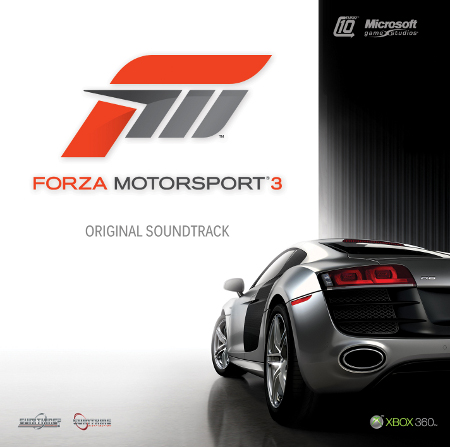
Chris: Forza Motorsport 3 was commemorated with a widely recognised soundtrack release and many consumers hope for the same from Forza Motorsport 4. Is a soundtrack release being considered for the game? Will the music continue to appeal on a stand-alone level?
Lance Hayes: A lot of people are excited about the possibility of a soundtrack and I’m confident based on the feedback that I’ve been getting since the game’s release that the music would appeal on its own. All I can say is that a soundtrack is being considered. Also, if you recall, the soundtrack to Forza Motorsport 3 came out several months after the game was released.
Chris: Many thanks for your time today, Lance Hayes. Is there anything else you’d like to say about the soundtrack to Forza Motorsport 4? In addition, is there any message you’d like to send your fans across the world?
Lance Hayes: Thanks for the great questions! Working with the brilliant team at Turn 10 on the Forza series has been an amazing experience and I hope that everyone has as much fun listening to my score as I did creating it.
To my fans, thank you for getting in touch with your feedback. I really appreciate it! Thanks also for stopping by my website as well as my Facebook and twitter pages. I enjoy hearing from everyone even if I don’t have time to respond personally to every note that comes in.
Listeners can listen to eight full-length tracks from Forza Motorsport 4 through Lance Hayes’ SoundCloud.
Posted on October 10, 2011 by Chris Greening. Last modified on February 27, 2014.

